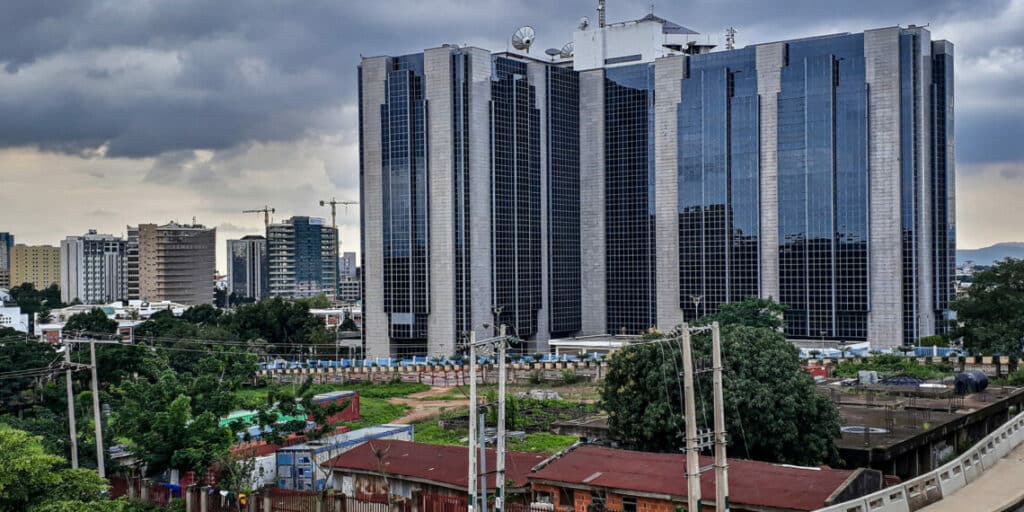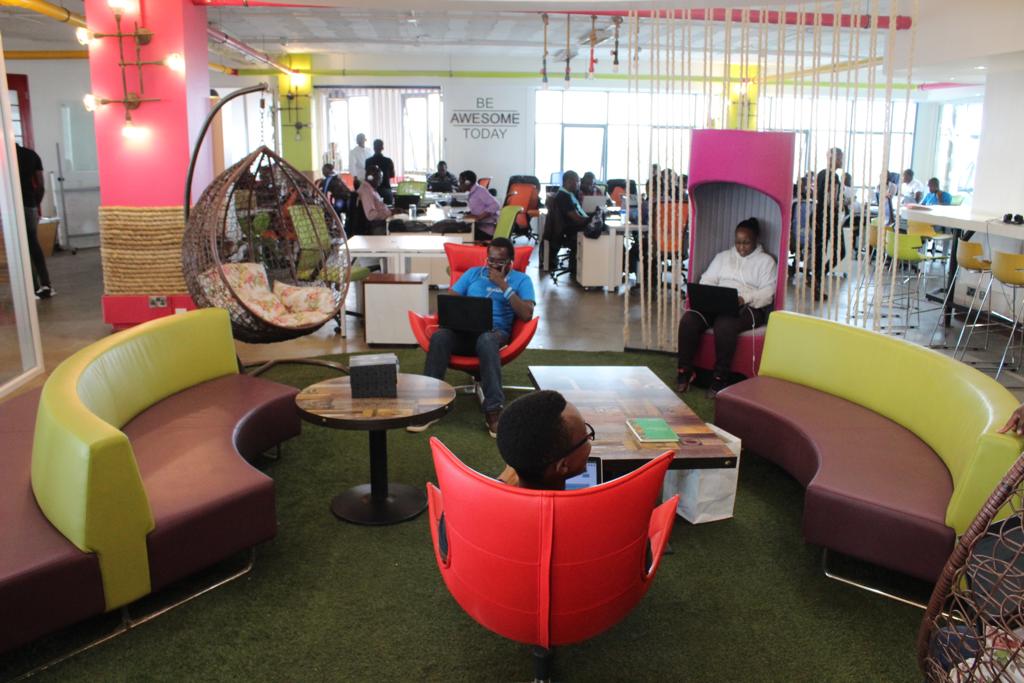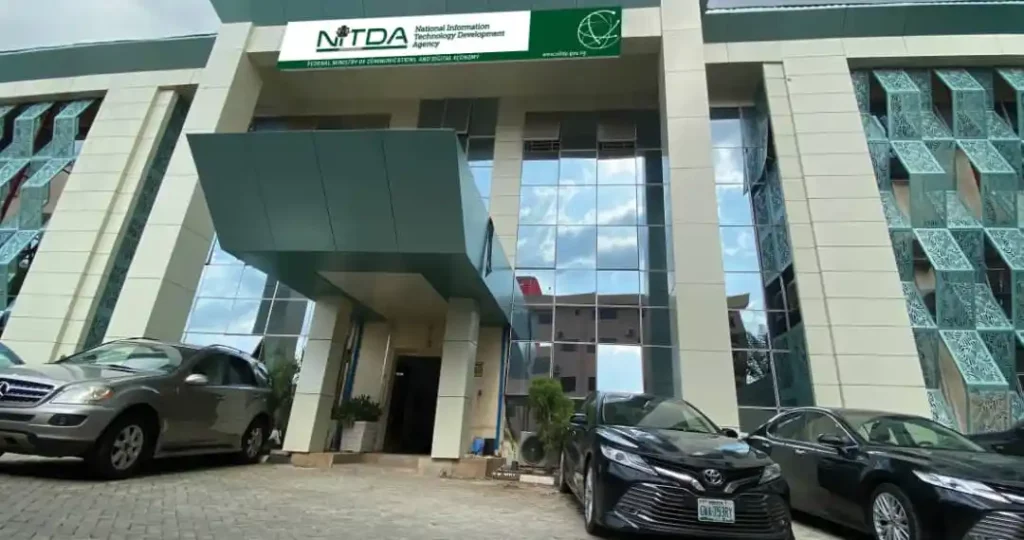Ina kwana,
Victoria from Techpoint,
Here’s what I’ve got for you today:
- CBN raises minimum capital requirements for banks
- Cellulant exits Nigeria’s mobile money scene
- NITDA warns against QR code scams
- Kenya goes green with green plates
CBN raises minimum capital requirements for banks

Last Thursday, the Central Bank of Nigeria (CBN) raised the minimum capital requirements for banks.
Here’s the lowdown: For commercial banks with international authorisation, the CBN is raising the bar to ₦500 billion! While banks with national authorisation now need at least ₦200 billion, regional ones must have a minimum of ₦50 billion in their kitty.
Merchant banks are looking at a minimum of ₦50 billion, while non-interest banks need ₦20 billion for national authorisation and ₦10 billion for regional.
This is not just a suggestion; it is a deadline. All banks have 24 months – from April 1, 2024, to March 31, 2026 – to get their ducks in a row and meet the new requirements.
The goal? To ensure that Nigeria’s banks have sufficient financial resources to continue supporting the economy.
And how should banks go about it? The CBN recommends they bring in new equity capital through private placements or rights issues, merge with other banks, or even downgrade or upgrade their licences.
The catch is that the new capital must consist solely of paid-up capital and share premiums. No funny business with additional Tier 1 Capital, alright? And if a bank falls short of the capital adequacy ratio requirement, it’ll need to inject more capital to make up for it.
Now, what about new banks? Well, they better come prepared with the big bucks, too. Any new applications for banking licences after April 1, 2024, must meet the new capital requirements upfront, with a deadline of March 31, 2026, to get their ducks in a row.
But don’t worry, the CBN won’t leave banks hanging. It’s giving them until April 30, 2024, to submit a plan detailing how they’ll meet the new requirements. Besides, your money is safe.
Cellulant exits Nigeria’s mobile money scene

Cellulant, a big player in African payments, has decided to bow out of the mobile money scene in Nigeria.
Why? The Central Bank of Nigeria (CBN) yanked the company’s mobile money licence because Cellulant wanted to switch gears and focus on serving businesses instead of individual users.
However, Cellulant says it’s all good because the CBN didn’t pull the plug because of any rule-breaking or shady business. It was more of a mutual decision, with Cellulant asking for the licence to be revoked so they could pivot to offering payment services.
This plan has been brewing since 2021. Remember when it renewed its PSSP licence back in February 2023? That was just the start. Now, it wants to offer online and offline payment solutions to businesses across Nigeria.
Cellulant started as a music streaming platform in 2002, but it’s come a long way since then. These days, it’s all about fintech, offering digital payments and managing a whole network of retailers, banks, and more across Africa.
But it hasn’t been smooth sailing lately. It’s had its fair share of challenges, including a bit of restructuring and some layoffs. And to top it all off, its CEO, Akshay Grover, stepped down in January 2024 to deal with personal stuff.
NITDA warns against QR code scams

The National Information Technology Development Agency (NITDA) warns Nigerians about QR code scams.
The agency says scammers use these codes to trick people into phishing scams, payment fraud, and even identity theft.
QR codes are those black-and-white squares you see that store URLs or other info for your smartphone’s camera to read. But now, scammers are taking advantage of them.
NITDA’s advice? Be super cautious when scanning QR codes. These scammers are sneaky and can trick you into revealing sensitive information or redirecting payments to their accounts instead of where they’re supposed to go.
How do they do it? Well, they might link you to fake websites or apps, embed malware in the codes, or even collect your information through fake ads or surveys.
So, what can you do to stay safe? Stick to scanning codes from trusted sources, double-check before scanning anything fishy, and use reliable QR code scanner apps with good security features. And remember to keep your devices updated with the latest antivirus software.
Kenya goes green with green plates

Kenya is going green with special number plates for electric vehicles (EVs)!
The government is rolling out green plates for all EVs, including electric motorbikes. It’s all part of Kenya’s big push to get more people driving EVs to cut down on carbon emissions.
Kipchumba Murkomen, Kenya’s Cabinet Secretary for Roads and Transport, says EVs can slash greenhouse gas emissions and save the country a tonne of money on importing petroleum.
And the fancy green plates? They are not just for show; they are intended to get people talking about electric vehicles and, hopefully, persuade more people to switch.
But that’s not all. Kenya’s also getting serious about electric mobility with a new draft policy. This policy will guide everything from electric cars to trains, planes, and boats.
And it’s not just about saving the planet; it’s about creating jobs too. Murkomen says the EV sector will bring in more manufacturing jobs, which is great news for the economy.
And get this: even the government is jumping on the EV bandwagon. They intend to replace all their old fuel-guzzlers with new EVs, which they believe will save taxpayers a boatload of cash on fuel and maintenance.
To top it all off, the ministry is setting up charging stations at its headquarters.
Last week on Techpoint Africa
- Yango introduces Yango Express to enhance large deliveries across Africa
- Cellulant exits mobile money sector as CBN revokes licence
- Tinubu’s economic council: Tech secures 10% representation with Bosun Tijani, Funke Opeke, Chidi Ajaere
- Binance executive reportedly escapes detainment
- EFCC and the finance intelligence unit map fresh plans to exit Nigeria from FATF’s grey list
- Leatherback partners YES BANK to improve remittances and payouts in India
- MTN Group revenue surges despite inflation and forex volatility in 2023
- Zimbabwe to send 3 new satellites into space
- Visa and ACCOSCA to boost access to financial services in Kenya and Tanzania
- Access Holdings partners Safaricom, M-Pesa to bridge East and West African remittances
- Reformed Internet scammer shares why he stopped being a fraudster
- Nigeria’s tax agency sues Binance for tax evasion
- Telecel to take over MTN’s operations in two West African markets
- Netflix subscribers in Nigeria to pay more from April 1, 2024
- Copyright Commission sues MTN Nigeria and 4 others for alleged copyright infringement
- Egypt’s edtech startup Sprints is moving into 10 new markets with a $3 million bridge fund
- BasiGo raises $3 million to boost bus production in East Africa
- As fraud threatens Nigeria’s fintech boom, collaboration and stricter compliance could save the day
- Canva acquires UK’s Affinity to take on Adobe in the design market
- Wasoko’s valuation falls to $260 million as VC cuts the value of its holding
- Zeeh Africa launches GSI-powered loan recovery solution in Nigeria
- MTN contemplates tariff hike to regain $101 million in forex losses
- Commercial Bank of Ethiopia recovers $10 million from its $14 million system glitch loss
- Telecom Egypt partners India’s Tejas to improve local skills
- TikTok’s ByteDance shuts down LetsChat, its messaging app, in Africa
- South Africa’s regulator launches investigation into CIPC after a system breach
- VC firm Satgana closes first fund to support early-stage climate-tech startups in Africa
- Detained Binance executives sue EFCC and NSA for violation of fundamental human right
- NDPC plans to ban lenders’ mobile numbers over privacy violations
- Tunisia’s ANAVA invests $4.3 million in Janngo fund for women-focused businesses
- NFTs didn’t die, here’s what happened
- Telkom customers to get up to 12 months of promotional offers for Amazon video services
- Documentation is the backbone of a sustainable company culture, people and culture exec says
- GTBank and 2 others to transition to credit institutions in Uganda by June
- Absa Bank Kenya and Visa partner to ease payments for travel agents and businesses
- South Africa’s richest black man to join Canal+ in MultiChoice bid as buy offer deadline nears
- American Business Council and US Mission foster dialogue on supporting the Nigerian startup ecosystem amid economic challenges
What I’m reading and watching
- Huawei reports strongest growth in four years
- Black Christians vs Black Atheists | Middle Ground
- The crossroads of human evolution (India, Pakistan, Bangladesh, Sri Lanka)
Opportunities
- Zyolix is looking for a UI/UX & Product Designer for Saas Website. Apply here.
- Apply for the product manager role here.
- Lemonde Payments is looking for a Product UX Designer. Apply here.
- 0x is hiring a Senior Software Engineer (Full-Stack). Apply here.
- A US-based company is looking for a Junior Software Engineer to join our miniExtensions team. Apply here.
- Seedstars has announced INFUSE 2024, a global invitation for innovative applications aimed at fortifying health systems against climate threats and improving immunisation delivery. Apply here.
- Explore this website to find multiple job opportunities in Data that align with your preferences.
- If you are a software engineer, creative designer, product manager, design researcher, or a techie looking for an internship role, please, check out this website.
Have a great week!
Victoria Fakiya for Techpoint Africa.










